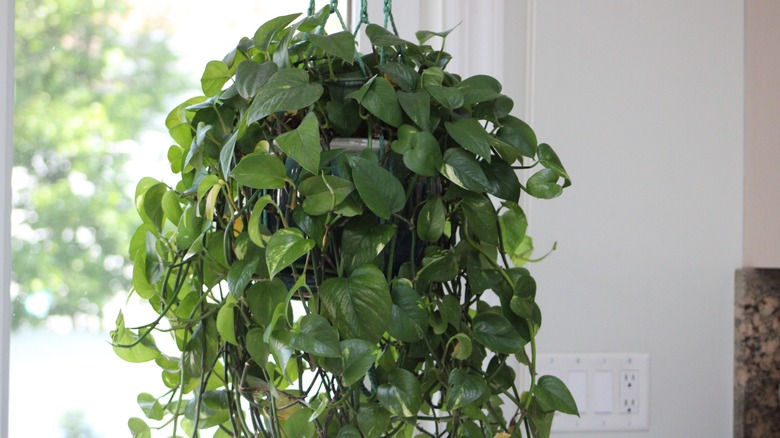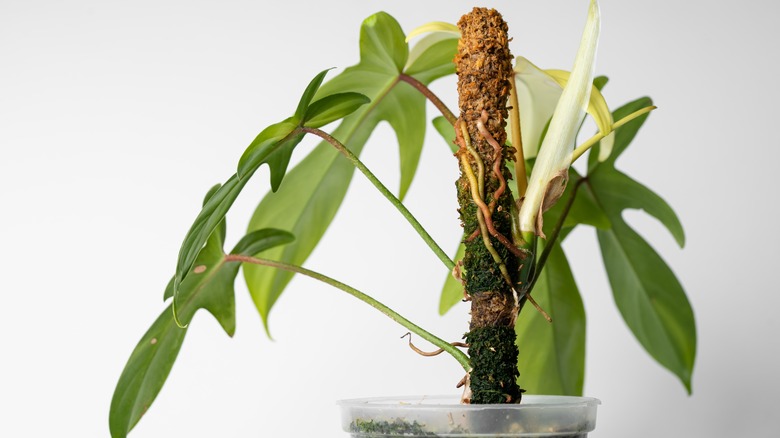The Biggest Mistake You Can Make When Repotting Your Climbing Plants
There are hundreds if not thousands of attractive climbing plants that have become commonplace in homes as more plant enthusiasts adopt green babies for home decor. Philodendrons, pothos, and mini monsteras, to name a few, are popular choices that have bright green foliage sometimes interspersed with fenestrations — leaf perforations — or even variegated colors or designs. Nevertheless, these climbing plants are often native to jungle or tropical habitats and have evolved to climb to great heights to reach brighter sunlight, meaning they can and will grow to towering heights in your home too.
In order to accommodate these colossal green friends, it's important to anticipate that they will grow to these heights if they are not trimmed, and plan ahead by using a tall pole or trellis from the get-go. While it might seem silly to use a 6 or 8-foot tall moss pole on a tiny plant, once these untamed beauties are potted, repotting them with a larger stake becomes an arduous task as many of these vining house plants will form to the provided pole sometimes attaching aerial roots and making it more difficult to detach them from starter poles. To avoid damaging the plant or creating more work for yourself, it's best to start with the tallest pole you're willing to house in your space and allow the plant to simply take over as it matures.
Best types of poles for your climbing plants
When it comes to choosing the best pole for your climbing plants, there are a number of great options. First, bamboo poles are a popular choice for supporting climbing plants due to their strength and durability. Bamboo is a fast-growing and renewable resource, making it an environmentally friendly option. The natural strength of bamboo allows it to withstand the weight of climbing plants without bending or breaking. Additionally, bamboo poles are lightweight, making them easy to handle and install.
Coco coir poles are another excellent option for supporting climbing plants. Coco coir is a natural fiber derived from coconut husks, making it a sustainable choice. Coco coir retains moisture, which helps to keep the climbing plants hydrated. The fibrous texture of coco coir also provides a suitable surface for the plants to attach their aerial roots, promoting healthy growth.
Lastly, moss poles are a unique and beneficial option for climbing plants. Moss poles are made by wrapping a metal cage pole with sphagnum moss, creating a natural and attractive support system. Moss poles have a high water retention capacity, providing a humid environment that mimics the plants' natural habitat. This helps to prevent the plants from drying out and promotes optimal growth. Moss poles also provide a suitable surface for the plants to attach their aerial roots, allowing them to anchor themselves securely.

